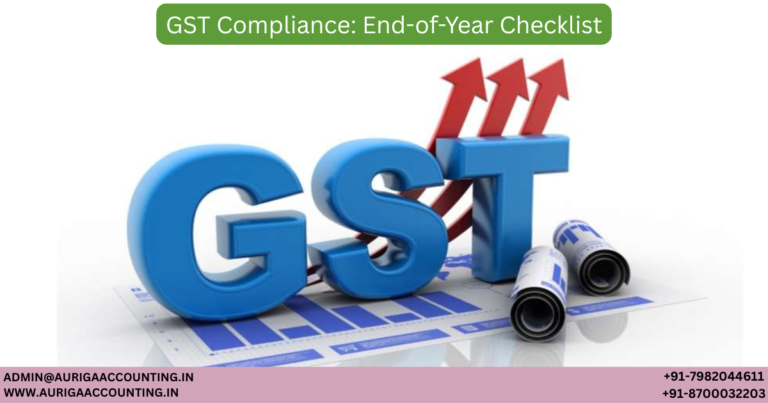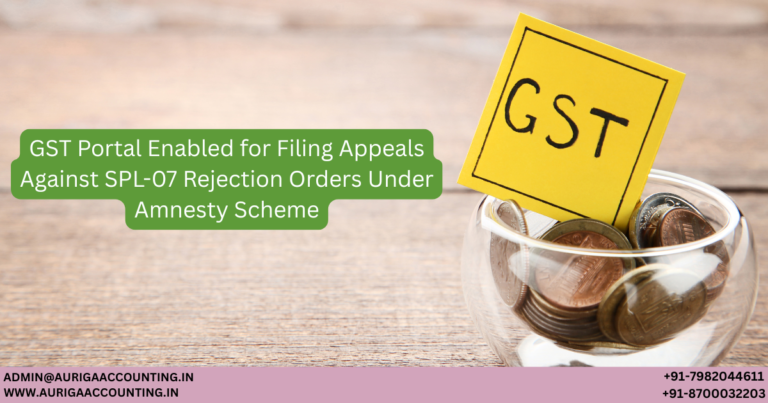Rohan is a skilled writer who excels at simplifying complex legal concepts into practical, easy-to-understand guidance. Her insightful articles equip entrepreneurs with the knowledge they need to confidently navigate business laws and successfully launch and run their ventures.

GST on Popcorn : You Should Know
Introduction
TogglePopcorn, a beloved snack among movie enthusiasts and casual consumers alike, has recently become a focal point in India’s tax discussions. The introduction of different Goods and Services Tax (GST) rates for various types of popcorn has led to confusion and raised critical questions regarding its tax classification. This article breaks down the GST on popcorn, detailing the applicable rates and classification under the GST framework
GST on Popcorn
Popcorn has long been a favorite snack for movie-goers, but its taxation under India’s Goods and Services Tax (GST) has become more complex over time. The 55th GST Council meeting introduced new classifications and rates, creating varied GST treatments based on popcorn’s form, packaging, and ingredients.
Previous GST Classification
Before the 55th GST Council meeting, popcorn—whether loose or pre-packaged—was uniformly taxed at 5%. This rate aligned with other non-luxury, unpackaged food items
Changes Introduced at the 55th GST Council Meeting
Post-meeting, GST rates on popcorn now differ as follows:
Loose (Unpackaged) Popcorn: Continues to attract a 5% GST, classified as a basic snack or ‘namkeen.’
Pre-Packaged, Labelled Popcorn: Now taxed at 12%, reflecting its status as a packaged food item.
Caramelized Popcorn: With added sugar, it is treated as sugar confectionery and taxed at 18%, similar to chocolates and candies
Current GST Classification and Rates
Unpackaged, Salted or Spiced Popcorn: 5% GST, treated like other savory snacks.
Pre-Packaged Popcorn: 12% GST, reflecting packaging and convenience.
Caramel Popcorn (with sugar): 18% GST due to its confectionery nature (HS Code 1704 90 90)
Why Are There Different GST Rates on Popcorn?
“Ready-to-eat” popcorn that is seasoned with salt and spices and sold unpackaged and unlabelled is classified as a savory snack (namkeen) and is taxed at 5% GST.
In contrast, popcorn that is pre-packaged and labelled is considered a packaged food item and is therefore subject to a higher GST rate of 12%.
Popcorn mixed with sugar, such as caramel popcorn, is treated as a sugar confectionery under GST rules. It falls under HS Code 1704 90 90 and is taxed at 18%, reflecting its classification alongside sweets and candies
GST on Loose Popcorn (Unpackaged and Unlabelled)
For fans of traditional loose popcorn—whether salted or spiced—the GST rate remains a modest 5%. This rate aligns with other unpackaged savory snacks like chips and namkeen. Since this popcorn is neither pre-packaged nor labelled, it is classified under the ‘namkeen’ category for taxation purposes.
This clear and straightforward classification ensures that movie-goers can continue enjoying their favorite salty or spicy popcorn at an affordable price, with minimal tax-related cost impact
GST on Pre-Packaged and Labelled Popcorn
Popcorn sold in sealed, pre-packaged packets is classified differently and attracts a higher GST rate of 12%. This rate applies to ready-to-eat popcorn that is packaged and labelled, placing it in the same category as other packaged food products.
The increased tax reflects additional costs associated with packaging and labelling, as well as the convenience offered to consumers. Consequently, pre-packaged popcorn tends to be priced higher due to the 12% GST rate
Flavored and Pre-Packaged Popcorn: Different GST Rates
Popcorn is available in several forms—loose, pre-packaged, and flavored—each attracting different GST rates.
Loose popcorn seasoned with salt and spices is taxed at 5%, similar to other savory snacks like chips and namkeen.
Pre-packaged and labelled popcorn, including sealed packets, falls under the 12% GST bracket, as it is treated like other packaged food products.
Due to these differing rates, pre-packaged popcorn generally costs more than loose popcorn, reflecting the higher tax applied
GST on Caramel Popcorn
Caramel popcorn, which contains added sugar, is subject to a higher GST rate of 18%. Under GST regulations, it is classified as a sugar confectionery, similar to candies and other sweetened products. Consequently, caramel popcorn falls under HS Code 1704 90 90, designated for sugar-based items.
The elevated GST rate reflects the taxation policy for products containing added sugar, meaning that lovers of this sweet, indulgent snack can expect to pay a premium due to the higher tax
GST on Popcorn Bundled with Movie Tickets
When popcorn is sold as part of a combo with movie tickets, the GST rate for the entire package is based on the main item—usually the movie ticket.
If the movie ticket attracts a 12% GST, the bundled popcorn will also be taxed at 12%, regardless of whether it’s loose or packaged. Similarly, if the ticket is taxed at 18%, the entire combo, including the popcorn, will carry the 18% GST rate.
As a result, popcorn purchased as part of a combo may end up costing more than when bought separately
How Do These Rates Compare to Other GST Challenges?
The varied GST rates for popcorn reflect a broader complexity in India’s tax system, which often grapples with classification challenges for everyday products. For instance, coconut oil—used both as cooking oil and hair oil—is taxed differently: edible coconut oil attracts a 5% GST, whereas hair oil is taxed at 18%. Such examples demonstrate how nuanced and detailed GST classifications can be, even for common household items
Clarifying the Confusion
To simplify these classifications, the GST Council relies on the Harmonized System Code (HS Code) to assign tax rates. The HS Code standardizes product categorization across industries, ensuring consistency. In the case of popcorn, this system helps accurately classify and tax different varieties—whether salted, spiced, caramelised, or pre-packaged—based on their unique attributes
What Vendors & Consumers Should Know About GST on Popcorn
For vendors, the different GST rates add complexity to inventory management and pricing. They need to correctly classify each popcorn variety—whether loose, pre-packaged, or caramelised—to apply the appropriate tax. This can be especially challenging for businesses offering multiple types of popcorn.
For consumers, the GST impact varies depending on the popcorn they choose:
Loose popcorn is more affordable, taxed at 5%.
Pre-packaged popcorn costs more due to a 12% GST.
Caramelised popcorn is the priciest, with an 18% tax rate
About the Author
Rohan
February 19, 2026
new
January 8, 2026
January 8, 2026
January 6, 2026
January 2, 2026
January 2, 2026
December 31, 2025
December 29, 2025
December 29, 2025
December 29, 2025
December 27, 2025
December 27, 2025
December 26, 2025
December 16, 2025
December 13, 2025
November 27, 2025
November 27, 2025
November 26, 2025
November 25, 2025
November 21, 2025
November 20, 2025
November 20, 2025
November 20, 2025
June 16, 2025
June 13, 2025
June 11, 2025
June 9, 2025
June 5, 2025
June 5, 2025
June 5, 2025
June 5, 2025
June 4, 2025
June 4, 2025
June 3, 2025
June 3, 2025
May 31, 2025
May 31, 2025
May 30, 2025
May 30, 2025
May 30, 2025
May 29, 2025
May 29, 2025
May 29, 2025
May 29, 2025
May 28, 2025
May 28, 2025
May 27, 2025
May 24, 2025
May 23, 2025
May 22, 2025
February 1, 2024
September 7, 2023
September 7, 2023
September 6, 2023
September 6, 2023
September 5, 2023
September 5, 2023
September 5, 2023
September 5, 2023
September 4, 2023
September 4, 2023
September 4, 2023
September 4, 2023
September 1, 2023
September 1, 2023
September 1, 2023
September 1, 2023
August 30, 2023
August 30, 2023
August 30, 2023
August 29, 2023
August 29, 2023
August 29, 2023
August 29, 2023
August 28, 2023
August 28, 2023
August 28, 2023
August 28, 2023
August 28, 2023
August 26, 2023
August 26, 2023
August 26, 2023
August 26, 2023
August 25, 2023
August 25, 2023
August 25, 2023
August 25, 2023
August 24, 2023
August 24, 2023
August 24, 2023
August 24, 2023
August 22, 2023
August 22, 2023
August 22, 2023
August 22, 2023
August 22, 2023
August 21, 2023
August 21, 2023
August 21, 2023
August 21, 2023
RELATED ARTICLES
GST Compliance:...
GST Year-End...
Use a Virtual...
Auto-Populated...
No posts found












